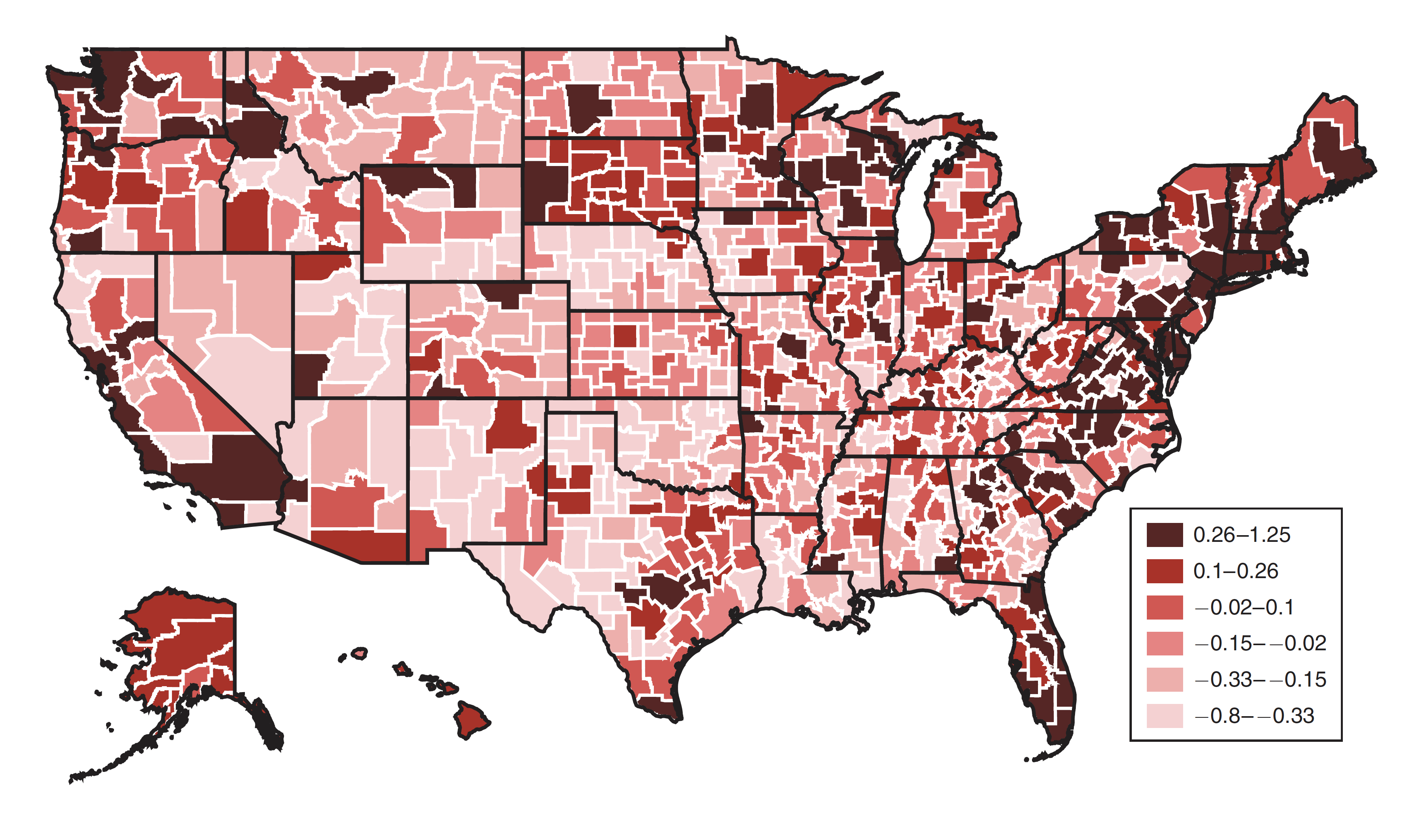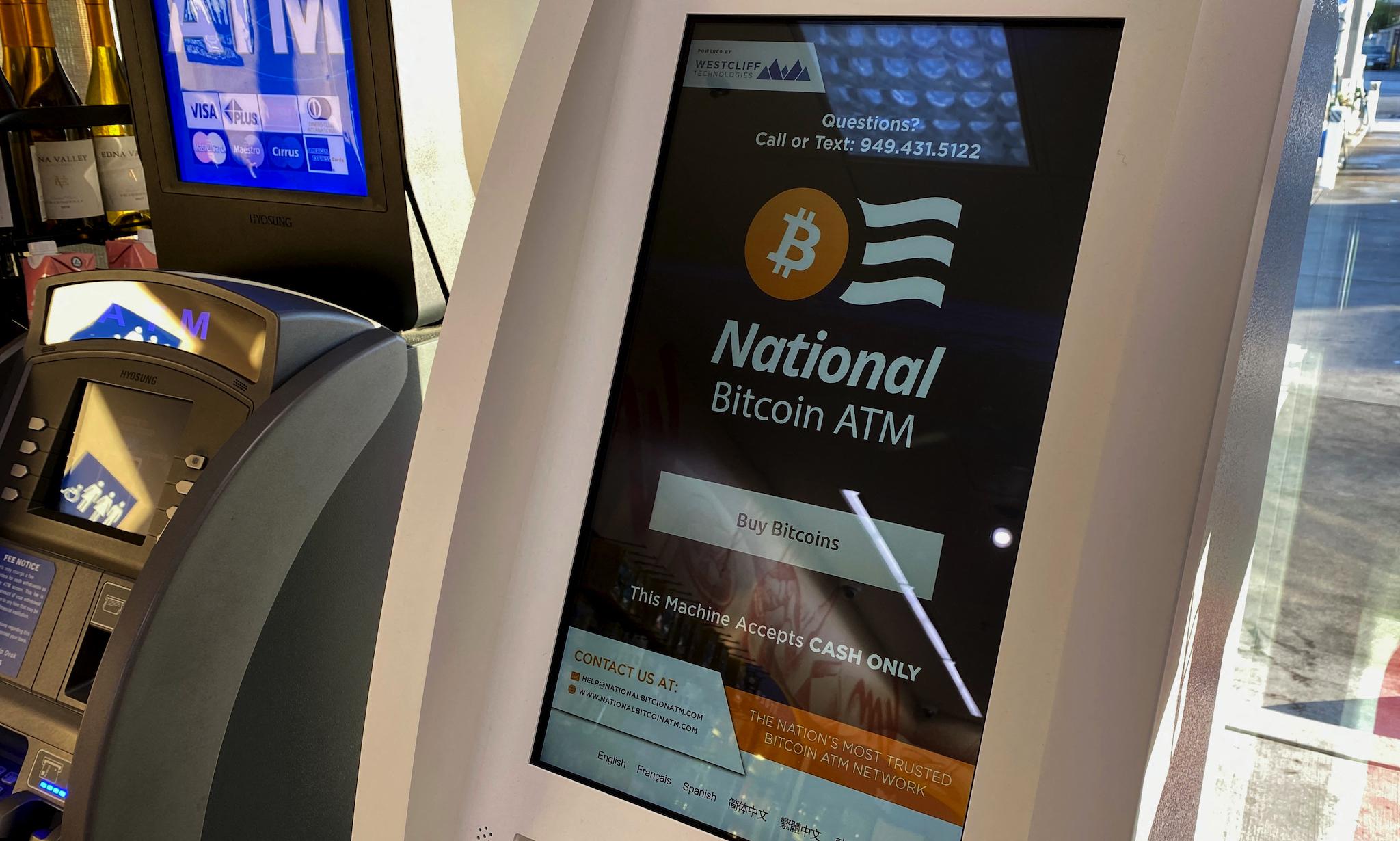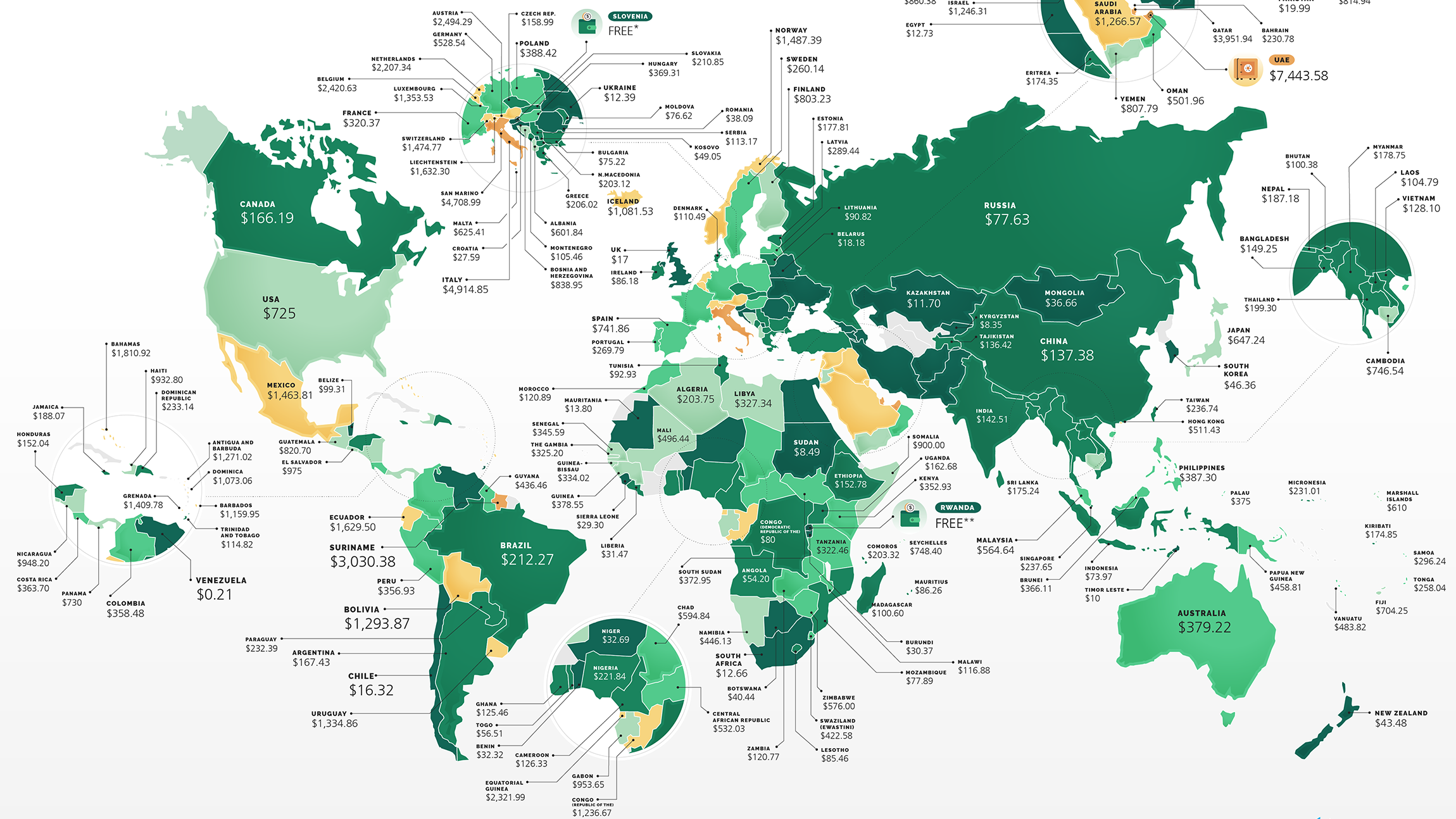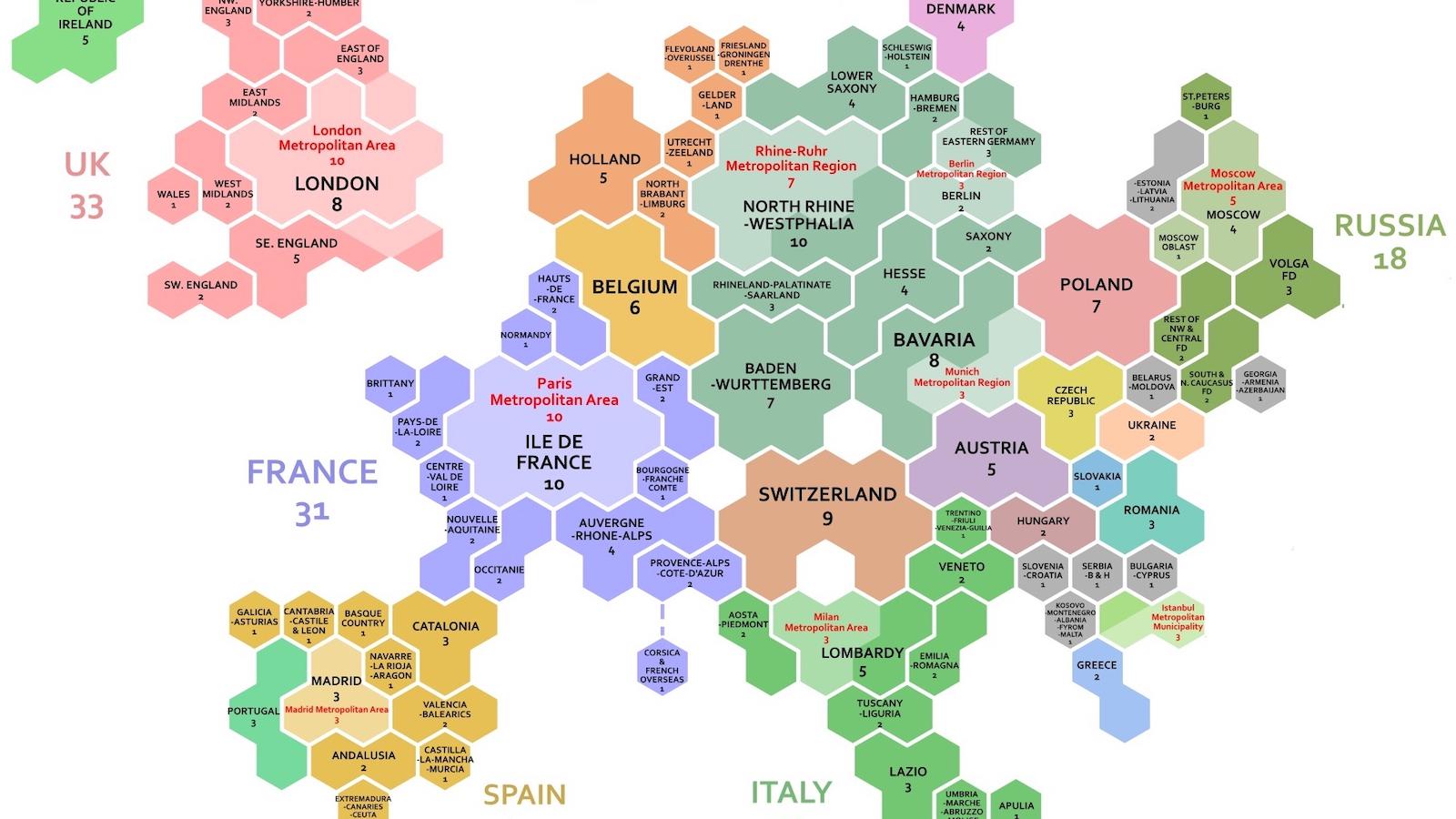How faster internet could reduce unemployment

- A study examined the economic benefits of giving cheap internet to the poor.
- Those getting the discounted internet were more likely to seek and find work.
- Fast internet is not a cure-all, but it is a modern necessity on par with water and electricity.
Broadband internet has become vital to modern life. Given how dependent many people are on high-quality internet connections for work, school, and socializing, it is not a stretch to conclude that a good internet connection is a necessity on par with water and electricity.
However, the quality of American internet connections is often lacking. Depending on the exact measure, the U.S. is in the middle of the pack among developed countries when it comes to how well it provides internet access. Also, if you are an American, you are probably paying a little more for internet that is a little slower than the connections in other countries.
As with so many things, the situation is compounded by income inequality. While 86 percent of households earning more than $70,000 per year have a broadband connection, this percentage drops to 56 percent for those making less than $40,000. Underscoring the importance of this is a new study published in the American Economic Journal: Economic Policy that demonstrates how much low-income families benefited from getting broadband access that they lacked previously.
A life without broadband? Perish the thought.
The study, carried out by George Zuo of the University of Maryland, examined families who participated in the Internet Essentials (IE) program offered by Comcast as part of an arrangement that they made with the U.S. government to reduce fears of the possible negative side effects of a merger.
The program offered “15 megabits per second (Mbps) broadband internet for $9.95 per month to families with children eligible for free and reduced-price lunch through the National School Lunch Program (NSLP). The discounted pricing is $20 to $30 lower than typical, nonpromotional prices for equivalent speeds. The program also provides ancillary benefits such as fee waivers and instructional materials to mitigate other financial and psychic costs of connecting online from home.”
Since the program was only available in areas where Comcast operated and for families with children getting food aid while having incomes below 185 percent of the federal poverty line, it was possible to compare economic outcomes for this group with a similar one that did not receive the same benefits. The comparative employment rates over time are shown in the following graph.
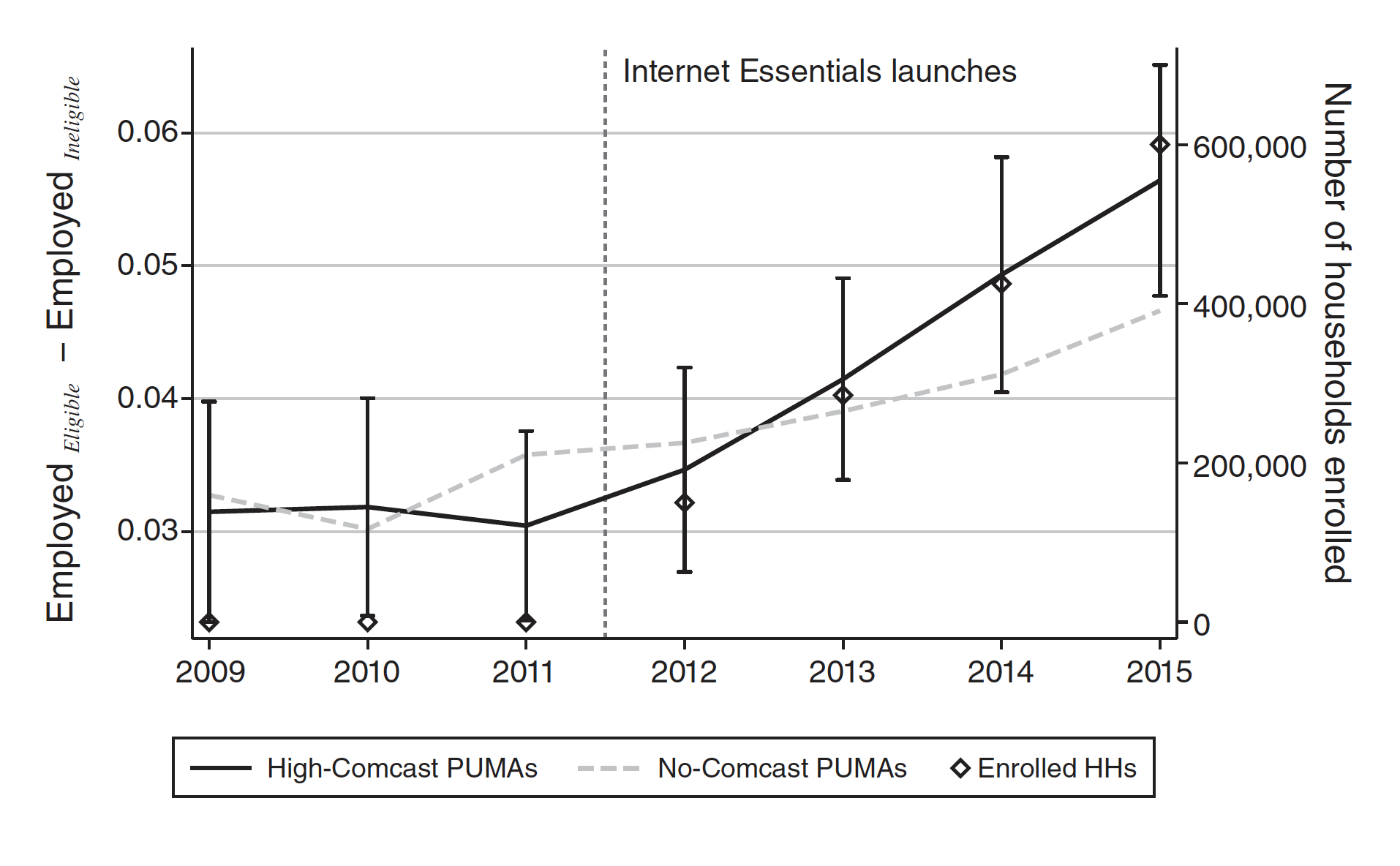
It turns out that giving people cheap, affordable internet is good for them. As shown, those eligible for the program who received discounted internet from Comcast were much more likely to become employed than both those in the same area who were ineligible for the program and those who could have qualified for the program but lived in areas not serviced by the provider.
Dr. Zuo explained in his study that the “availability of Internet Essentials led to a 0.9 percentage point increase (1.6 percent) in the probability that an eligible low-income individual was employed. After adjusting for take-up rates, I calculate that enrollees were 8.1 percentage points (14.3 percent) more likely to be employed.”
The economic benefits were calculated to be about $2,202 per enrolled household — more than four times the cost of providing the discounted internet service.
Cheap internet is not a cure-all
Unlike previous studies tying improved internet access to people finding high-paying jobs, this study found no evidence that the jobs people gained access to were of substantially higher quality than those they might otherwise have found.
Still, most people cite the internet as the most important tool they have for finding a new job. Improved internet access not only makes the job hunt easier, but for many positions, it makes the hunt possible in the first place. Dr. Zuo concludes his paper by restating the importance of the internet in finding work:
“Those who cannot afford monthly broadband subscriptions are inherently restricted when navigating the modern labor market. These individuals also risk falling behind in ways that extend beyond the labor market. The internet plays a central role in education, access to goods and services, communication, and more.”
